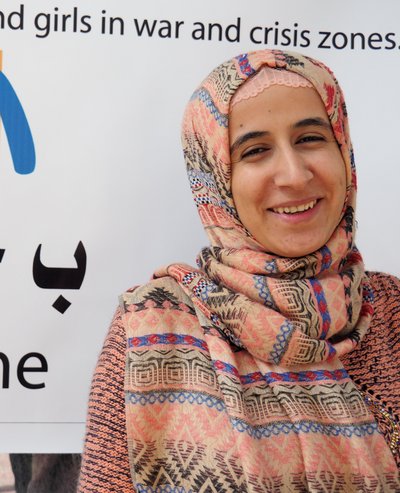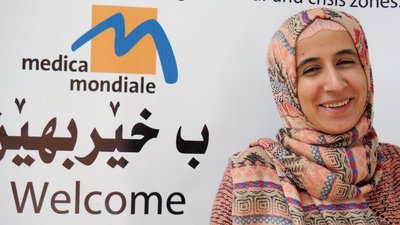East and Central Africa: Great Lakes Region
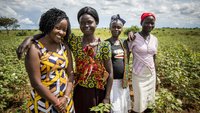
The Great Lakes area of central Africa encompasses countries affected by past or acute present conflicts, such as Rwanda, Burundi, Uganda and DR Congo. The roots of these conflicts reach back to the colonial era and generally revolve around land and mineral resources. The global trade in coltan, gold and cobalt all nourish a flourishing conflict economy, mainly to the benefit of politicians and military leaders.
Innumerable rebel groupings and militia all keep the flames of conflict ablaze. Millions are internally displaced or refugees. In plain view of the UN peacekeeping troops and international community, sexualised violence continues to be used as a weapon, particularly in the DR Congo. Partner organisations report rape, slavery and human trafficking, forced marriages and sexualised partner violence.
Eight facts on women's rights in the Great Lakes Region
1. DR Congo: Conflict-related sexualised violence
Despite several long-standing peace initiatives, the lives of the people in the DR Congo are marked by violent conflicts, displacement and human rights violations. In 2022, the rise of the rebel group M23 and protests against the UN peacekeeping mission MONUSCO led to new violence in the eastern part of the country. Since the beginning of 2020, the reported numbers of sexualised wartime violence have tripled. In 2021, the UN peacekeeping mission MONUSCO documented 1,016 cases. More than 70 percent of these assaults were committed by non-state groups, the rest by state security forces and army personnel. Partner organisations assume that the number of unreported cases is much higher, as many survivors remain silent out of shame. Only very few receive medical, psychological or material support.
Millions of women fear violence every day: even when working in the fields or fetching water, they are threatened with assault and rape. More than five million people have therefore fled the violence in their home communities - and are still in danger: sexual assaults occur frequently along the way. Most of the internally displaced women have lost their means of income. In order to survive, many are forced to become sexually exploited in exchange for money or food for themselves and their children. Soldiers of the UN peacekeeping mission are among the perpetrators as well.
2. Rwanda: Sexualised wartime violence and trauma
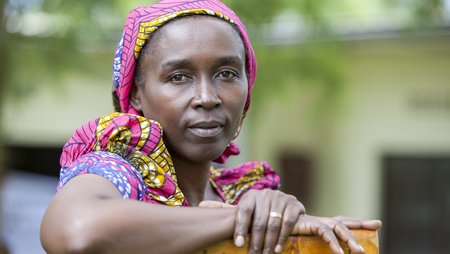
The UN estimates that between 250,000 and 500,000 women and girls were raped during the genocide in Rwanda. Thousands of children were born after being conceived during these brutal attacks. The social isolation and ostracism of the survivors and their children affect their whole family. They are often left living in poverty and desperation due to their health problems and traumatic stress.
3. Uganda: Cast out and marginalised
One in five Ugandan woman (22 percent) between the ages of 15 and 49 has experienced sexualised violence. During the COVID-19 pandemic, the number of assaults increased sharply, especially among minors. Most girls and women remain silent due to the stigma of being a survivor. This has been the case for decades.
Historical background: During the armed conflicts in Uganda since the early 1980s, innumerable young women and girls were kidnapped by rebels. They were held for months or even years, used as sex slaves, and repeatedly raped. Many of the survivors were left with unwanted pregnancies. In the eyes of their families they are “soiled“. Along with their children, they are then often cast out and socially marginalised, even if the pregnancy was the result of rape.
4. Sexualised violence in everyday life
Suppression and violence characterise the everyday life of many women in the region in times of peace. According to national healthcare surveys, between 44 and 62 percent of all women in Rwanda, Burundi, DR Congo and Uganda have been subjected to physical and/or sexualised violence.
5. Gender-based violence: Simply because they are girls
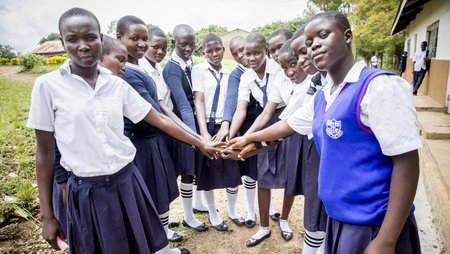
Girls are subject to a continuum of violence and disempowerment. For example, in Uganda almost one in three girls is married before the age of 18 and the rate of teenage pregnancies is one of the highest in the world at 25 percent. Those affected generally have to abandon their schooling and any chance of education. In the DR Congo and Burundi, sexualised violence is tolerated at school thus normalising violence against girls. Orphans, street children and ethnic minorities are especially at risk.
6. Structural violence and repression
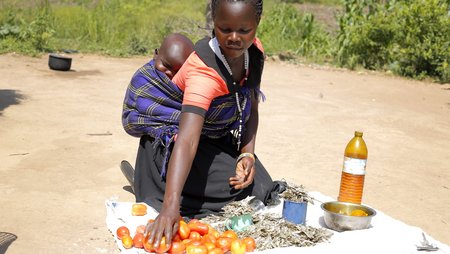
In the DR Congo and Burundi, family laws increase the discrimination of women and girls: in the eyes of the laws, they are inferior to men and subject to male conservatorship. In Uganda, too, reforms such as those of 2021 , which are intended to ensure more equal rights and protection from violence, often fail in everyday implementation due to patriarchal values and resistance. Corruption and a weak legal system obstruct attempts to bring perpetrators to justice and compensate survivors. In Uganda, culturally embedded traditions, especially in rural areas, prevent women and girls from accessing protein-rich, healthy food.
7. Restricted access to healthcare provision
In the wake of long years of conflicts, healthcare provision in the Great Lakes Region is inadequate. Especially in rural areas there is a shortage of clinics and staff. Many women and girls therefore do not have access to medical care, even in the case of serious injuries caused by rape. Most cannot afford transportation to the nearest hospital, medication or treatment. Inadequate medical provision and risky abortions lead to high rates of maternal mortality and miscarriages.
8. Milestones in the fight against sexualised violence
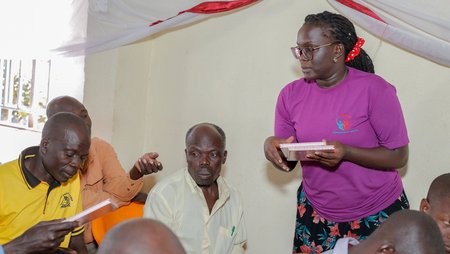
The regional women’s rights organisations have brought the issue of sexualised violence into public awareness. It was their pressure which forced the countries in the region to accept important UN Resolutions on women, peace and security. Another important success was in 2006 as the International Conference on the Great Lakes Region agreed a Protocol on the Prevention and Suppression of Sexual Violence against Women and Children. The objectives of the Protocol include ending impunity, protection, and the provision of material and social assistance, including compensation, to survivors.
The presidents of Burundi, Rwanda and most recently the DR Congo (2021) launched the national initiative "Tolerance Zero immediate" against sexualised violence against women and girls. However, transnational cooperation remains poor. So far, no significant progress has been made in effective - also transnational - prosecution, prevention of sexualised violence and the establishment of adequate supporting structures. Even though structural obstacles remain, small progress was made in prosecution in the DR Congo in 2021: Military courts convicted 118 members of the armed forces, 28 members of the national police and 10 members of armed groups for sexual violence.
(Status of: 10/2022)
Facts & figures from our practical work
Please support this work by making a donation!
Partner organisations:
- Burundi: Mukenyazi Menya, Nturengaho, Dushirehamwe
- DR Congo: AFPDE, EPF, PAIF, RAPI, FRDP
- Rwanda: SEVOTA
- Uganda: MEMPROW
Project priorities:
- Integrated support for women and girls affected by violence
- Training for staff at local institutions, on the subject of protecting women from violence
- Organisational development and networking of women’s rights organisations
Funding and funders:
- German Federal Ministry for Economic Cooperation and Development (BMZ)
- Brot für die Welt
- Sigrid Rausing Trust
- Fondation Smartpeace
- Deutsche Gesellschaft für Internationale Zusammenarbeit (GIZ GmbH)
- Medicor Foundation
- Leopold Bachmann Foundation
- EU/HNTPO
- Foundation Anne-Marie Schindler
- Own resources
Source: Annual Report 2021
Focal points of work
1. Integrated support for survivors of sexualised violence
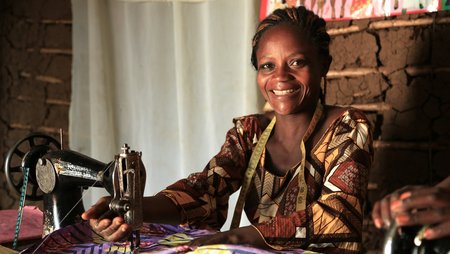
The partner organisations of medica mondiale are often the first points of contact for survivors of sexualised violence. They offer integrated support . The counsellors empower the survivors in psychosocial counselling sessions and where necessary refer the survivors on to healthcare centers for primary health care.If necessary, they also refer them to lawyers, who follow up on the cases and bring them to court. Income-generating measures such as agricultural training or micro-credits also enhance the women’s economic independence. In South Kivu alone, 121 women received micro-credits in order to carry out their economic projects.
2. Breaking the cycles of violence
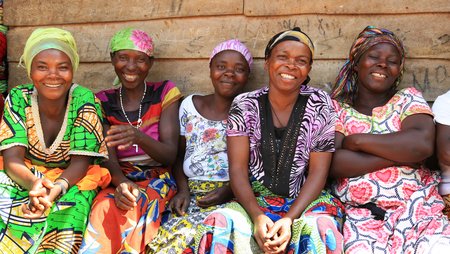
The cycles of violence cannot be broken unless both the causes and consequences of violence are tackled. So prevention of violence and support for women and girls affected by violence are both essential components of our projects in Great Lakes Region. Our primary aim in supporting women and girls is to strengthen their self-confidence and their social status, in turn empowering them to actively rise up against violence and patriarchal ways of thinking. medica mondiale also supports the prevention work of the partner organisations. It consists of workshops and trainings in the social environment of the girls and women, among others with families, in schools or with the police.
3. Eliminate violence against women now
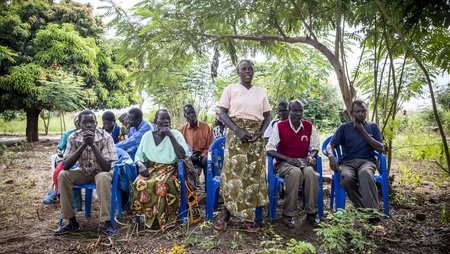
In Burundi our partner organisations are taking new paths in violence prevention. One method aims to enable people to take a critical look at power and gender relations, facing up to the causes of violence against women and girls. By adopting this approach of SASA! (Kiswahili for ‘Now!’) adopted from Uganda, they intend to draw attention to inequality in power structures, and the opportunities to change these in the long term.
Specific involvement of key actors in the communities
To bring about positive change ,this involves mobilising key actors, such as village elders, women’s groups, parents, and teachers, to become active within their communities and commit themselves to equal rights and the protection of women and girls. One example of how this can begin is the gender-equal sharing of household chores such as fetching water.
4. Training the Stress- and Trauma-sensitive Approach (STA)
For our partner organisations, their work with survivors of violence can often be stressful and challenging. So self-care is an important aspect of project work with them. Regular supervision and training sessions help staff to guard against stress and deal with it better when it does occur. Since 2021, experts from the region have also been training specialist staff in healthcare institutions in Burundi and DR Congo on how to adopt the Stress- and Trauma-sensitive Approach (STA). . In this way, we hope to create an environment where survivors receive integrated support and are able to stabilise.
"It encourages me in my work when the perception of health professionals towards survivors changes. Survivors of violence need appreciation and support to face their trauma."
5. Advocacy and PR work for women’s rights
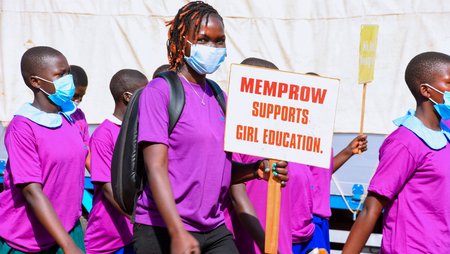
PR and advocacy work are important approaches for our partner organisations as they work to ensure the rights and protection of women and girls. For example, in Eastern Congo they train local authority and government agency staff, as well as managers, on how to implement measures that protect against sexualised and gender-based violence. They are also conducting a lobby campaign to bring about structural change against corruption and illegal court costs. In Uganda, MEMPROW is calling on the government to increase the resources available for programmes to empower women and girls.
6. Networking and strengthening women’s organisations
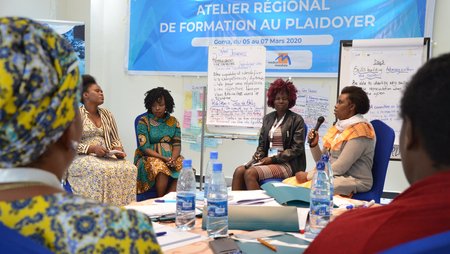
An end to violence against women and girls needs long-term changes in society. Progress towards this often fails because of a lack of political will and involvement. medica mondiale is committed to bringing together women’s organisations as civil society actors in the region, so they can work together to eliminate violence. One cross-border programme offers the partners funding and expertise, but also space to share their own experiences and learn from each other.
7. Strengthening feminist action
Working in a feminist way means working together. So medica mondiale is committed to exchange and networking. Each year, a symposium brings together stakeholders and partners from the whole region. Together they discuss effective measures, such as psychosocial work. By offering feminist leadership training, we also empower women in management positions within civil society and government structures.
(Status focal points of view of: 07/2022)




